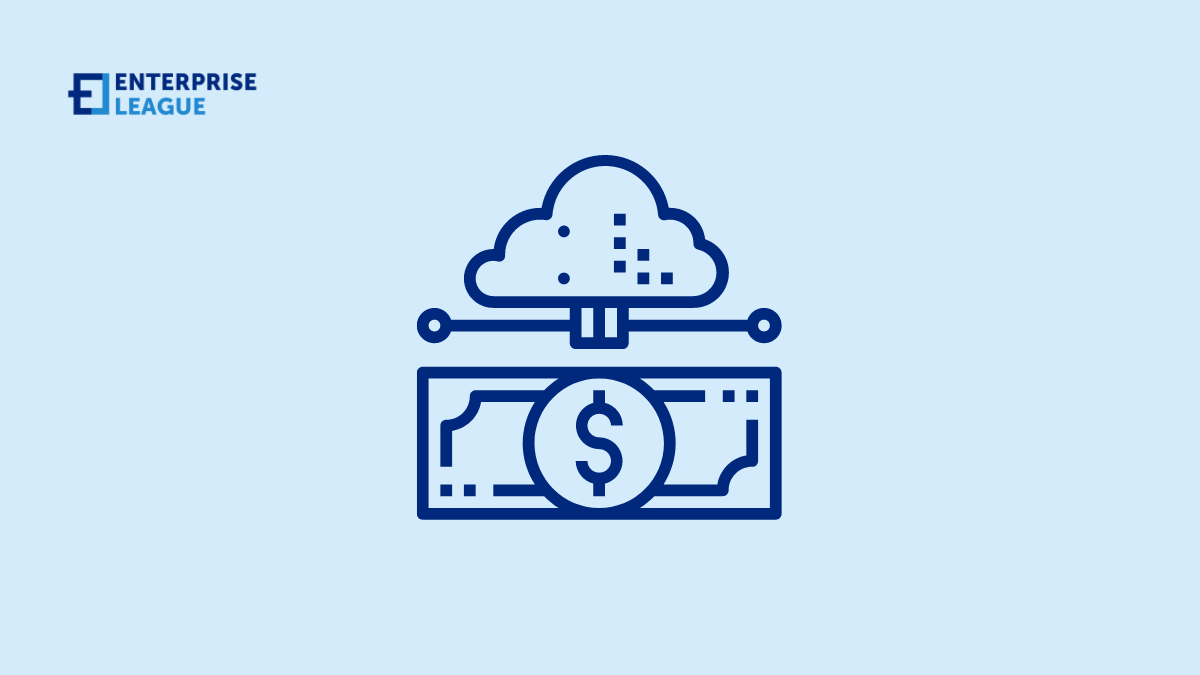DeFi or decentralized finance is a way of handling money online and instead of using banks, it uses blockchain technology so people can deal with each other directly. By this, we mean that transactions are becoming faster, cheaper, and often more accessible than traditional financial services.
DeFi market size is expected to reach $48.02 billion by 2031 which leads us to be assured that there’s indeed a huge potential and demand for fresh DeFi business ideas. Whether it’s building a decentralized lending platform or decentralized payment systems getting involved in the DeFi industry offers many advantages.
Best 13 DeFi business ideas
It can be hard to decide which business idea is worth your time and money, So we took our time to help you and gathered 13 DeFi business ideas that will be profitable in 2025.
Cross-chain solutions
Offering cross-chain solutions presents an emerging opportunity in blockchain technology. As decentralized networks and ledgers multiply, the ability to interface between different chains grows in importance. Cross-chain bridges can enable communication and interoperability between chains like transferring tokens or executing smart contracts across networks. This connectivity powers composability, combining the capabilities of multiple chains.
Cross-chain solutions may also offer benefits like faster transactions, enhanced security, and higher scalability compared to single networks. As blockchain adoption spreads across enterprises and consumers, cross-chain functionality will become pivotal in enabling widespread usage and unified ecosystems. With infrastructure integrations and custom deployments, this specialization supports decentralized systems behind mainstream adoption.
How much you can make: $100,000 – $10,000,000+ annually
How much does it cost to start: $50,000 – $1,000,000
How long does it take to build: 6-18 months
Decentralized lending platforms
Decentralized lending platforms is a peer-to-peer lending network that connects borrowers and investors without traditional financial institutions as intermediaries. Using blockchain technology, these platforms facilitate loans and payments between individuals in a transparent, secure way without centralized control. It opens investing and credit access to more people at lower fees compared to banks.
Expanding participation spreads risks and returns wider rather than the current system excluding many demographics. Without the brick-and-mortar overhead of major banks, decentralized networks optimize cheaper rates for both lenders and borrowers. By tracing all interactions on a tamper-proof public ledger, promotes mutual accountability from loan requests to paybacks. As public trust in traditional institutions declines but peer endorsement rises, decentralized finance solves old problems with technological innovation that serves inclusivity.
How much you can make: $100K – $10M annually
How much does it cost to start: $100K – $1M
How long does it take to build: 1-2 years
Decentralized insurance
Decentralized insurance is an insurance concept powered by blockchain technology to create more transparent, affordable coverage by connecting members to collectively pool risk. Unlike traditional insurers, governance and processes rely on computer code, not centralized management. Member premiums get pooled into funds to automate payouts if pre-set conditions occur like accidents or flight delays. The capabilities aim to reduce overhead costs like sales commissions and corporate administration through streamlined tech systems. This allows lower pricing relative to large insurers for members.
At the same time, blockchain integrity via digital ledgers brings full transparency on where monies flow. As younger generations trust institutions less but understand collaborative ecosystems, decentralized insurance taps social capital ethically beyond profit motives alone. Still an emerging model, success ultimately depends on simplified language communities that can rally around with tools to educate on the tangible member benefits.
How much you can make: $100K – $10M annually
How much does it cost to start: $100K – $1M
How long does it take to build: 1-2 years
Decentralized exchanges (DEXs)
Decentralized exchanges (DEXs) are a cryptocurrency exchange platform that enables direct peer-to-peer transactions between participants without an intermediary organization controlling funds or access. This differs from traditional centralized exchanges that hold users’ assets on company-owned wallets. By instead connecting crypto traders via blockchain networks, DEXs allow buying and selling coins straight from personal wallets.
This grants users full autonomy, privacy, and control over holdings while transacting securely. As crypto adoption grows despite volatility, consumers want more choice and authority in managing assets versus relying on external hosts. DEXs fulfill self-custody ideals that attract many to cryptocurrency initially. And without an intermediary taking a cut of transactions, optimized swapping fees benefit trader earnings over time.
How much you can make: $100K – $10M annually
How much does it cost to start: $100K – $1M
How long does it take to build: 1-2 years
Decentralized insurance
Decentralized insurance is a peer-to-peer insurance model that uses blockchain technology to connect policyholders globally without relying on traditional insurance companies as intermediaries. This removes the overhead costs of legacy providers, allowing lower premiums, faster claims, and frictionless experiences for members. By decentralizing the process to automated protocols, transparency, and accessibility empowers individuals to protect each other through shared risk pools internationally.
Without centralized intermediaries extracting value, it redirects power to people united directly through purpose-driven networks. Premium funds get invested in member yield opportunities like lending pools. Token models also guarantee coverage through volatile times unlike isolated company reserves vulnerable in crises.
How much you can make: $100K – $10M annually
How much does it cost to start: $100K – $1M
How long does it take to build: 1-2 years
Decentralized prediction markets
Decentralized prediction markets are forecasting platforms built on blockchain technology that allow users to trade virtual shares tied to the outcome of future events. Unlike traditional markets, it operates without a central authority through smart contracts. Participants can purchase and sell shares that represent the probability of something occurring such as an election result or product launch.
As predictions change, the share prices move encouraging activity. People who predict accurately gain monetary rewards adding incentive beyond being right. By connecting the wisdom of crowds, prediction markets can forecast events more accurately than individual experts. A decentralized approach brings open access and transparency lacking in centralized platforms. By spreading control among users, no single entity dictates terms or revenue. With cryptocurrency gaining mainstream traction and demand for forecasting tools growing among businesses, decentralized prediction markets propose an appealing evolution of predictive intelligence that rewards participation at scale.
How much you can make: $100K – $10M annually
How much does it cost to start: $100K – $1M
How long does it take to build: 1-2 years
Decentralized asset management
Decentralized asset management allows people to invest in various assets using cryptocurrencies and blockchain technology for transparency and security. Assets like real estate or contracts get tokenized on the blockchain so that ownership and value can be traced. Users can then securely buy and sell fractional portions of assets using cryptocurrency from anywhere without intermediaries. This opens alternative investments to the masses in a trusted, direct way not possible before.
Traditionally only institutions and the wealthy invested in assets like private equity, fine art, etc. By cryptographically registering assets on a tamper-proof decentralized ledger, asset tokens make ownership programmable, tradeable, and inclusive to anyone. Investing and managing becomes automated based on choices. As cryptocurrency adoption grows globally across generations and classes, blockchain-based fractional asset ownership can responsibly expand capital access and participation.
How much you can make: $100K – $10M annually
How much does it cost to start: $100K – $1M
How long does it take to build: 1-2 years
Decentralized payment systems
Decentralized payment systems refer to developing digital payment infrastructure that operates without central control. Rather than transactions relying on banks and credit cards, peer-to-peer networks would facilitate value transfers from one user account directly to another without intermediary clearance or fees. This aims to streamline cross-border commerce and optimize speed, security, and affordability. As financial services digitize globally, decentralized mechanisms can integrate layered encryption, transparency features, and community-run governance to sustain access without vulnerable points of failure.
Developers in this space focus on user-owned wallets, privacy protections, and protocols for exchanging currency, assets and programmable cash flows trustlessly. By spreading components across technology and participants, the model aligns incentives around direct exchange utility rather than centralized profit. If adopted at scale, decentralized payments could shift power to people and communities while supporting innovation ecosystems without restriction.
How much you can make: $100K – $10M annually
How much does it cost to start: $100K – $1M
How long does it take to build: 1-2 years
Decentralized identity
Decentralized identity is a digital identity verification system built on blockchain technology instead of centralized databases. It gives users ownership over their personal identity and transaction data instead of institutions owning silos of user data. This empowers individuals with control while still enabling identity confirmation capabilities needed by governments and businesses. Verifiable credentials can prove credentials, affiliations, and identity attributes for any use case ranging from age verification to professional licensing globally. It brings consent, data transparency, and validation utility to identity transactions without paperwork or long processing lag.
As digital processes expand across sectors like travel, finance, and healthcare, decentralized models answer calls for user empowerment and data dignity without sacrificing integrity. The blockchain approach helps parties securely validate credentials in a unified way, bridging today’s fragmented landscape of private repositories requiring endless updates. Whether residents or refugees, the decentralized architecture gives people an immutable yet portable personal data layer to walk through the world on their own terms.
How much you can make: $100K – $10M annually
How much does it cost to start: $100K – $1M
How long does it take to build: 1-2 years
Decentralized governance
Decentralized governance focuses on creating a platform for decentralized decision-making. It aims to help groups make choices without relying on a central authority. The platform would let members vote on issues and share ideas freely. This system could work for various groups, from small clubs to large companies. It might even be useful for some government processes.
The platform would make decision-making fairer and more open. It could lead to better choices that reflect what most people want. Also, it might help people feel more connected to their communities or organizations. By using technology, this idea could make group decisions easier and faster. It could save time and reduce conflicts. The system might also help include people who often get left out of important talks.
How much you can make: $100K – $10M annually
How much does it cost to start: $100K – $1M
How long does it take to build: 1-2 years
Decentralized gaming
Decentralized gaming refers to building online games that use blockchain technology for handling virtual transactions. In decentralization, no single entity controls the game platform or sets restrictive policies. Instead, governance and development decisions are steered by collaborative community members without gatekeeping. Players can truly own game assets like characters or currency tokens because purchases get recorded on public, tamper-proof blockchains.
A player-owned economy affords them the freedom to trade or cash out holdings. Game worlds also gain the flexibility to create new experiences like metaverse events together with players and third-party contributors from anywhere. While early traction exists in crypto-collectibles like digital art and sports cards, expanded multiplayer game creation on web3 is an emerging trend.
How much you can make: $100K – $10M annually
How much does it cost to start: $100K – $1M
How long does it take to build: 1-2 years
Creating a DeFi token
Creating a DeFi token involves developing a decentralized finance (DeFi) cryptocurrency token on the blockchain that enables various financial functions. As an alternative to traditional financial systems, DeFi tokens allow people to lend, borrow, earn interest, and make payments peer-to-peer without centralized intermediaries.
Creating an original token that offers utility and value appreciation potential within the DeFi ecosystem is lucrative as interest surges in crypto adoption. It also allows customizable parameters around supply amount, governance, incentives, and user access controls to serve specific purposes. With the right technical and economical token model, creative “tokenomics” supporting a novel DeFi use case can attract significant user activity while rewarding visionary developers and community members.
How much you can make: $100K – $10M annually
How much does it cost to start: $100K – $1M
How long does it take to build: 6-18 months
DeFi yield farming
DeFi yield farming is a way to generate rewards with cryptocurrency holdings by lending them out to decentralized finance (DeFi) applications. By providing liquidity to DeFi protocols, users can allow others to trade, lend, or borrow while earning interest, transaction fees, and governance tokens in return.
This creates a positive flywheel, the value locked in DeFi apps creates revenue streams for users while bringing more activity to the ecosystem. For crypto holders, yield farming offers much higher returns versus keeping assets idle in wallets. It puts savings to work. As the crypto economy matures, DeFi farming lets owners benefit from participating. Unlike locked savings accounts at traditional banks, the owner maintains control of assets while fluidly earning across a spectrum of rates as lending conditions change.
How much you can make: $100K – $10M annually
How much does it cost to start: $100K – $1M
How long does it take to build: 6-18 months
Conclusion
As we’ve mentioned above, the DeFi industry can offer you many advantages but you have to take into consideration that it is still a relatively new field that is yet to develop and that’s why it is important to be aware of the risks involved like security concerns and regulatory uncertainty. If you do your thorough research and don’t make any rushed decisions, we can assure you that you’ll have an amazing business success story like all those successful DeFi startups that are booming on the market.
More must-read stories from Enterprise League:
- Zero-waste business ideas to keep an eye on.
- Innovative and profitable farmer business ideas to consider starting.
- Profitable consulting business ideas to monetize your skills.
- Smart event planner business ideas to boost your entrepreneurial mind.
- Freelance business ideas that you can start from the comfort of your home.
Related Articles
What Are the Best Value Cleaning Solutions for High-Volume Car Washes? 5 Options for Managers
For high-volume car wash businesses, the right chemical supplier is the backbone of their operations. Today's competitive marketplace demands bulk solutions that are effective, reliable and tailored for maximum throughput. Whether you operate automated tunnels, in-bay...
What’s the Best Parcel Auditing Company? Here Are the 5 Top Options
With shipping costs on the rise and carrier invoices growing increasingly complex, businesses face significant challenges in managing their logistics expenses. Rising costs can often lead to inefficiencies and lost savings. Working with a parcel auditing company is a...
What Are the Top 5 Divorce Lawyers? Here Are Your Options in Franklin, TN
Divorce can be especially complex for business owners, where personal decisions often intersect with assets, partnerships and long-term financial planning. Knowing who the top-rated divorce lawyers in Franklin, TN, are can make a meaningful difference in protecting...
What Are the Best Value Cleaning Solutions for High-Volume Car Washes? 5 Options for Managers
For high-volume car wash businesses, the right chemical supplier is the backbone of their operations. Today's competitive marketplace demands bulk solutions that are effective, reliable and tailored for maximum throughput. Whether you operate automated tunnels, in-bay...
What’s the Best Parcel Auditing Company? Here Are the 5 Top Options
With shipping costs on the rise and carrier invoices growing increasingly complex, businesses face significant challenges in managing their logistics expenses. Rising costs can often lead to inefficiencies and lost savings. Working with a parcel auditing company is a...






